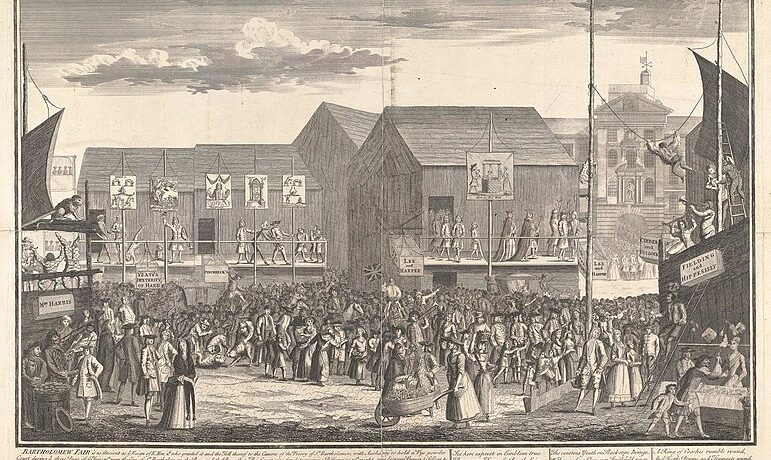Article Reviews
Review of Periodicals 71.1

Kindness and Kind in Shakespeare and Jonson
Toria Johnson brilliantly explores how Jonson’s 1616 Bartholomew Fair built on the inquiry into human kindness – into compassion as influenced by species-self-identification – which Shakespeare began in The Tempest. She departs from the common view that Jonson’s play’s induction, in its famed rejection of dramatic “drolleries” like “tempests” and “servant monster[s],” signals that Bartholomew Fair will simply satirically mock Shakespeare’s romance form with its city realism. Instead, she contends, Jonson takes Shakespeare’s own argument that “compassion is influenced by perception of ‘kind’,” and adapts it to his humors comedy form. She begins by demonstrating The Tempest’s use of Caliban and Ariel to expose Prospero’s struggle to empathize with other beings. Prospero’s victory over his own violent impulses coincides with his recognition that he and his enemies are of one kind. This insight is sparked by Ariel’s claim that Ariel himself would forgive them “were I human,” one of many comments in the play which link compassion with perceptions of kinship. Caliban, the “servant monster,” offers a vexed example; Prospero’s changing attitude towards him is involved with his alternating views of whether Caliban is human. (In Act 1, Prospero asserts that Caliban is a beast whom “stripes may move, not kindness,” though the play proves him wrong – “stripes” only move Caliban to murderousness – and at play’s end Prospero acknowledges his servant “mine.”) In contrast to Shakespeare, Jonson offers unambiguously human characters, though, in his customary way, he repeatedly…
Please login or subscribe to continue reading.
Please subscribe to The Shakespeare Newsletter to continue reading.
Subscribe Now